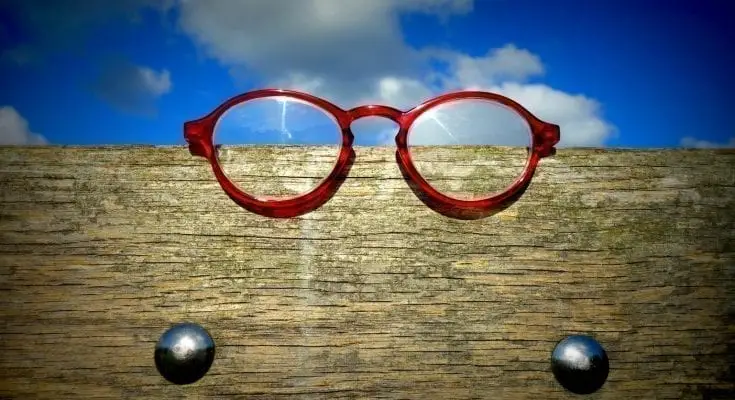It can be pretty annoying having to schedule in an eye exam TBH, especially when you’re not having any problems with your vision. It’s a waste of time, right? Nobody enjoys HIFW time is wasted. Well… no. Regular eye exams are just as important as regular medical and dental check-ups even if you aren’t having any issues IKR, and here’s why.
You may be able to see more clearly
Plenty of people have vision that has deteriorated by an amount that is imperceptible to them, and find that following an updated prescription for their glasses or contact lenses they can see the world more clearly. This is because when your vision worsens over time it tends to happen so gradually that you don’t notice. It’s the same theory as the lobster who would immediately jump out when placed into a pot of boiling water, but if you were to heat up the pot with the lobster in it, it would stay put. We don’t tend to notice small incremental changes. As well as impacting your quality of life, if your vision has deteriorated this could be impacting your ability to drive safely, and could be causing you to get headaches from straining your eyes. We aren’t there just yet with self driving electric vehicles or robots doing everything for us.
Early indicator of disease
As well as testing for changes in your vision, eye exams are early indicators of eye disease that you otherwise wouldn’t be aware of. According to the CDC, early treatment for conditions picked up in your eye exam such as cataracts, diabetic retinopathy, glaucoma, and age-related macular degeneration is absolutely essential for preserving your vision. Eye exams can sometimes also be early indicators for other health conditions such as high blood pressure and diabetes.
Exams are getting quicker and easier all the time
Eye exams are nowhere near as long and tedious as they used to be. Companies such as Depisteo design medical screening devices that detect the most common vision problems in under five minutes. You could easily spend longer than that pointlessly scrolling through Facebook!
When should you book an eye exam?
People with healthy eyes should be booking in an eye exam once per year. Your vision is generally stable for around three years, but as previously mentioned, the eye exam also functions to indicate issues aside from deteriorating vision, so once yearly is a good amount.
How you can look after your eyes
The American Optometric Association recommends the following actions that you can take in between eye exams in order to ensure good eye health:
- Protect your eyes from the sun. The UV rays emitted by the sun are damaging to your eyes, so be sure to wear sunglasses with both UV-A and UV-B protection. A lot of “fashion” sunglasses don’t actually provide any protection from UV light at all, so it’s important to look out for this.
- Protect your eyes from short-wavelength visible light. Continuous exposure to the short wavelengths emitted by digital devices and newer LED and fluorescent lights can contribute to age-related macular degeneration. Special glasses and lens coatings are available to block short-wavelength visible light.
- Don’t smoke. Smoking contributes to age-related macular degeneration and cataracts.
- Eat a balanced diet. Be sure to include foods that are rich in antioxidants such as leafy green vegetables and fish.
- Exercise regularly. Exercise improves blood flow, removes toxins, and increases the level of oxygen to the eyes.
FAQ
How often should I get an eye exam?
People with healthy eyes should be booking in an eye exam once per year. Your vision is generally stable for around three years, but as previously mentioned, the eye exam also functions to indicate issues aside from deteriorating vision, so once yearly is a good amount.
How can I protect my eyes?
Protect your eyes from the sun. The UV rays emitted by the sun are damaging to your eyes, so be sure to wear sunglasses with both UV-A and UV-B protection. A lot of “fashion” sunglasses don’t actually provide any protection from UV light at all, so it’s important to look out for this.
Additional Resources:
<
a href="https://www.med.stanford.edu/ophthalmology/patient_care/specialty_clinics/clinics_comprehensive.html">Stanford University Opthalmology


